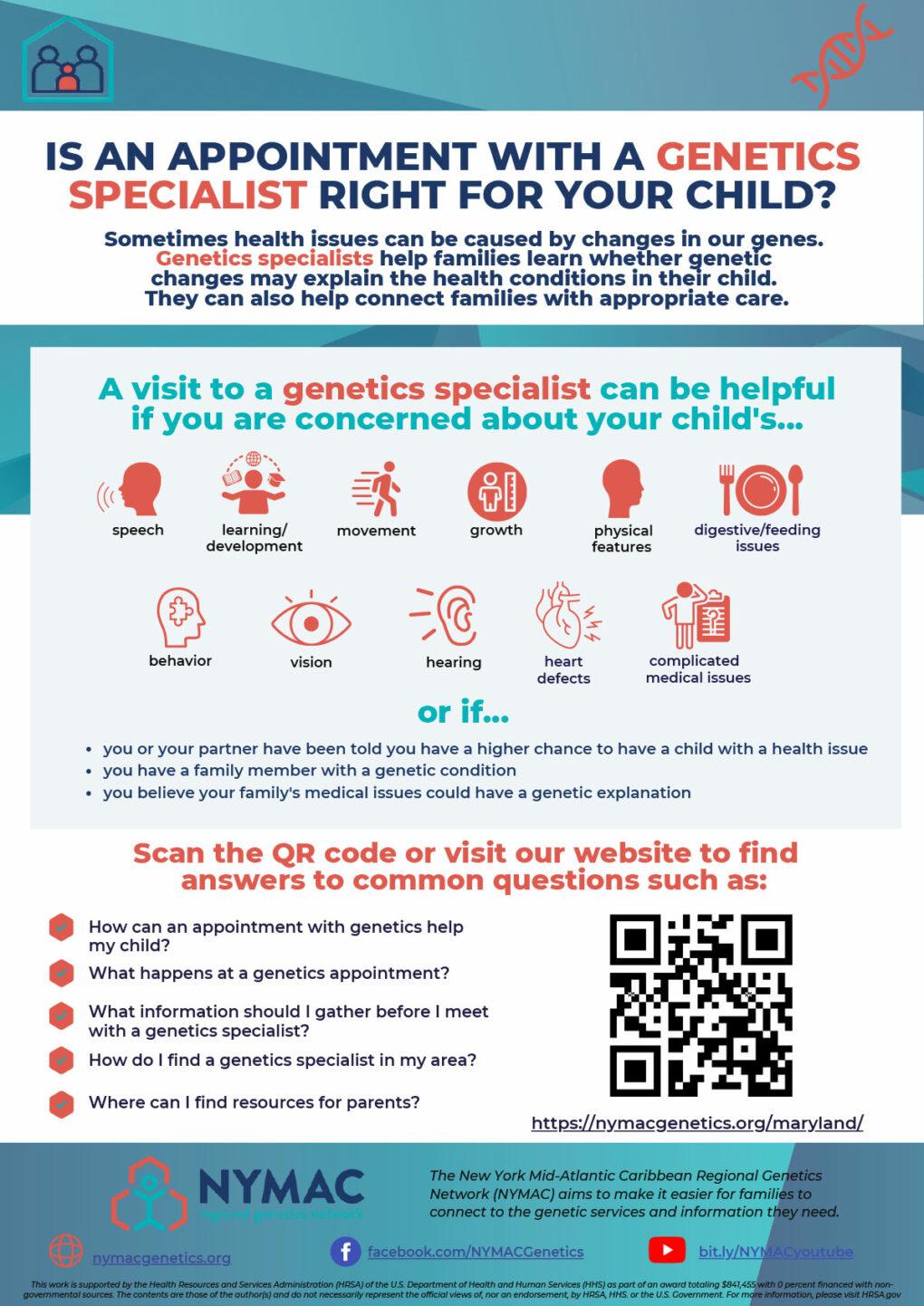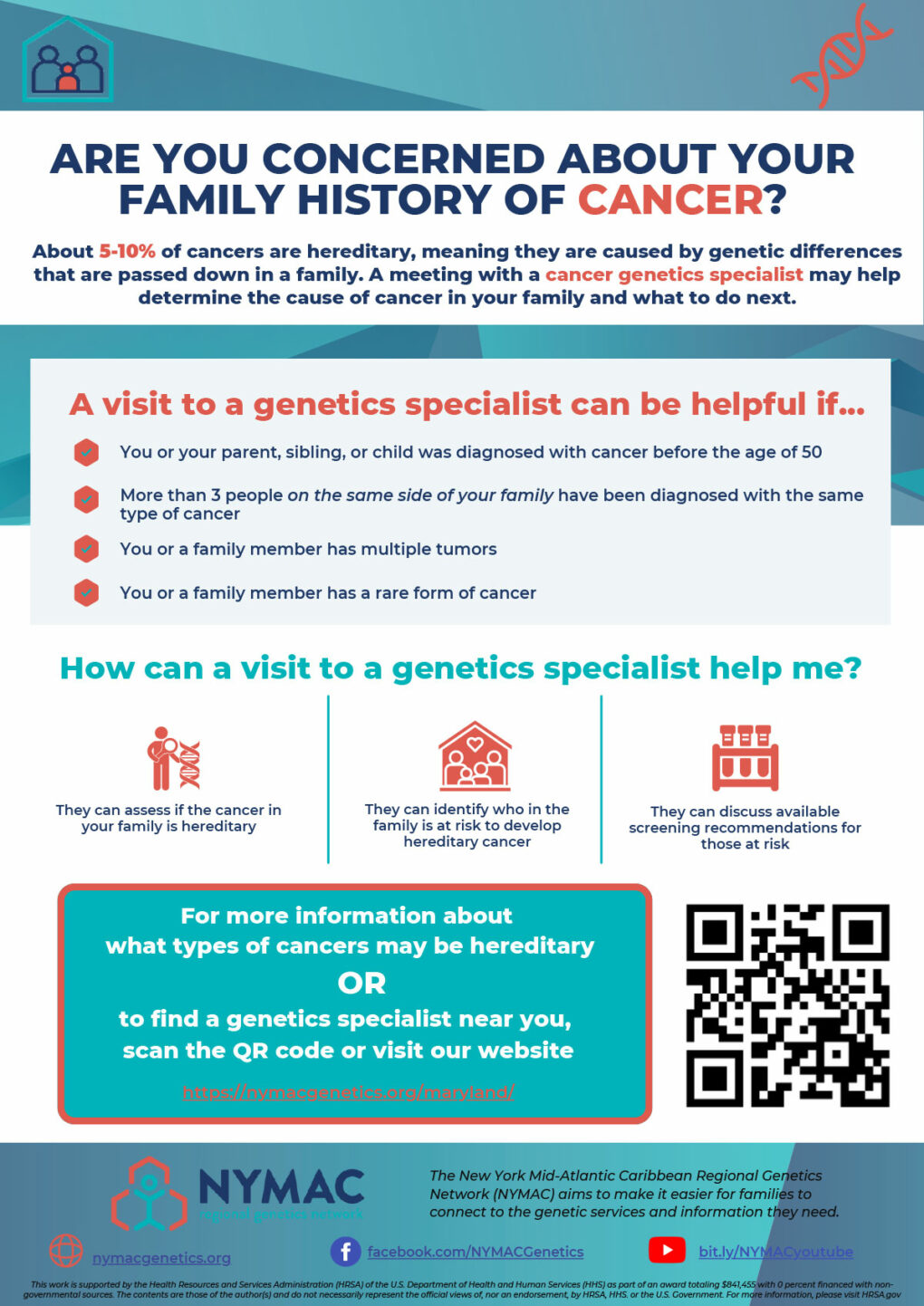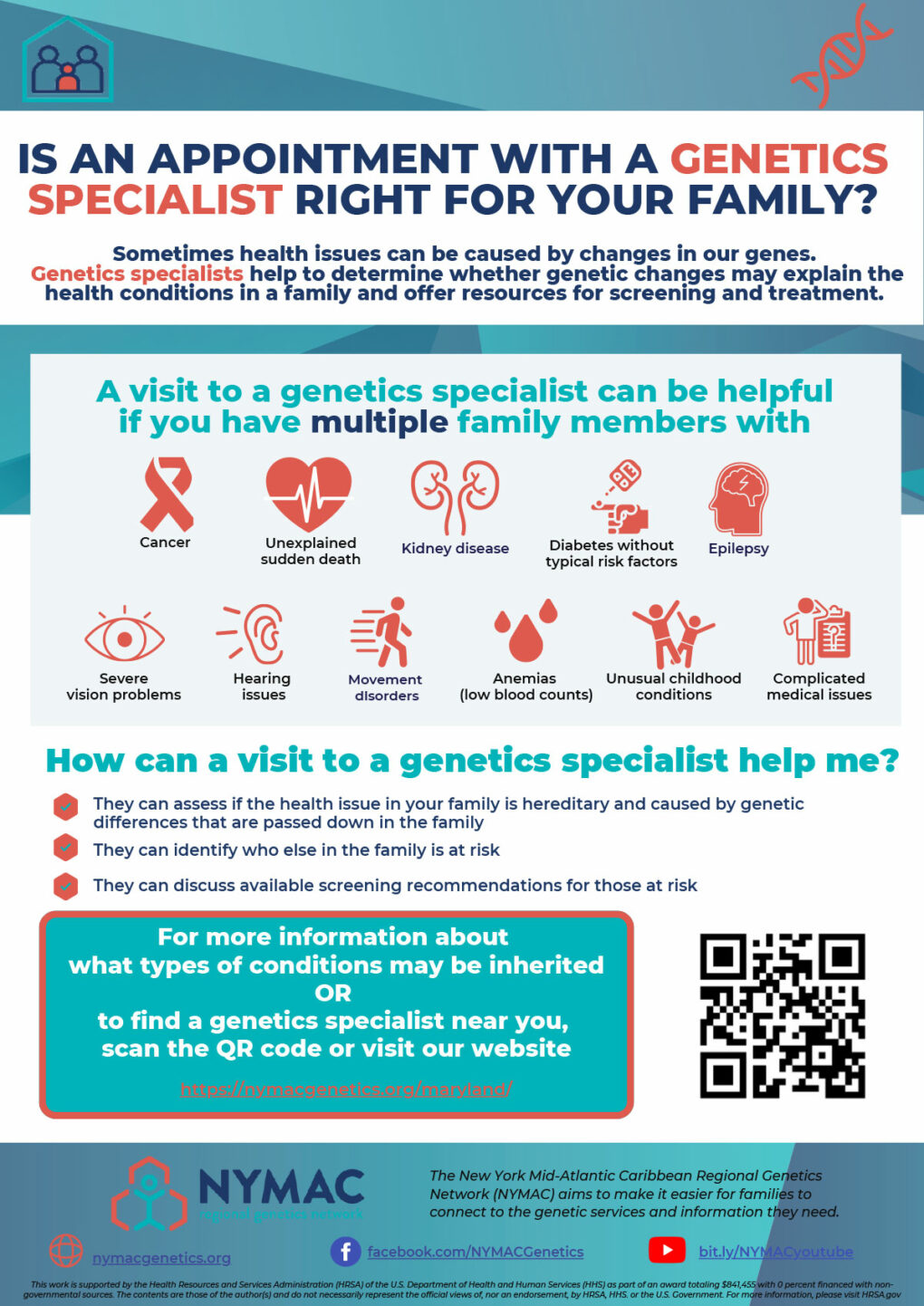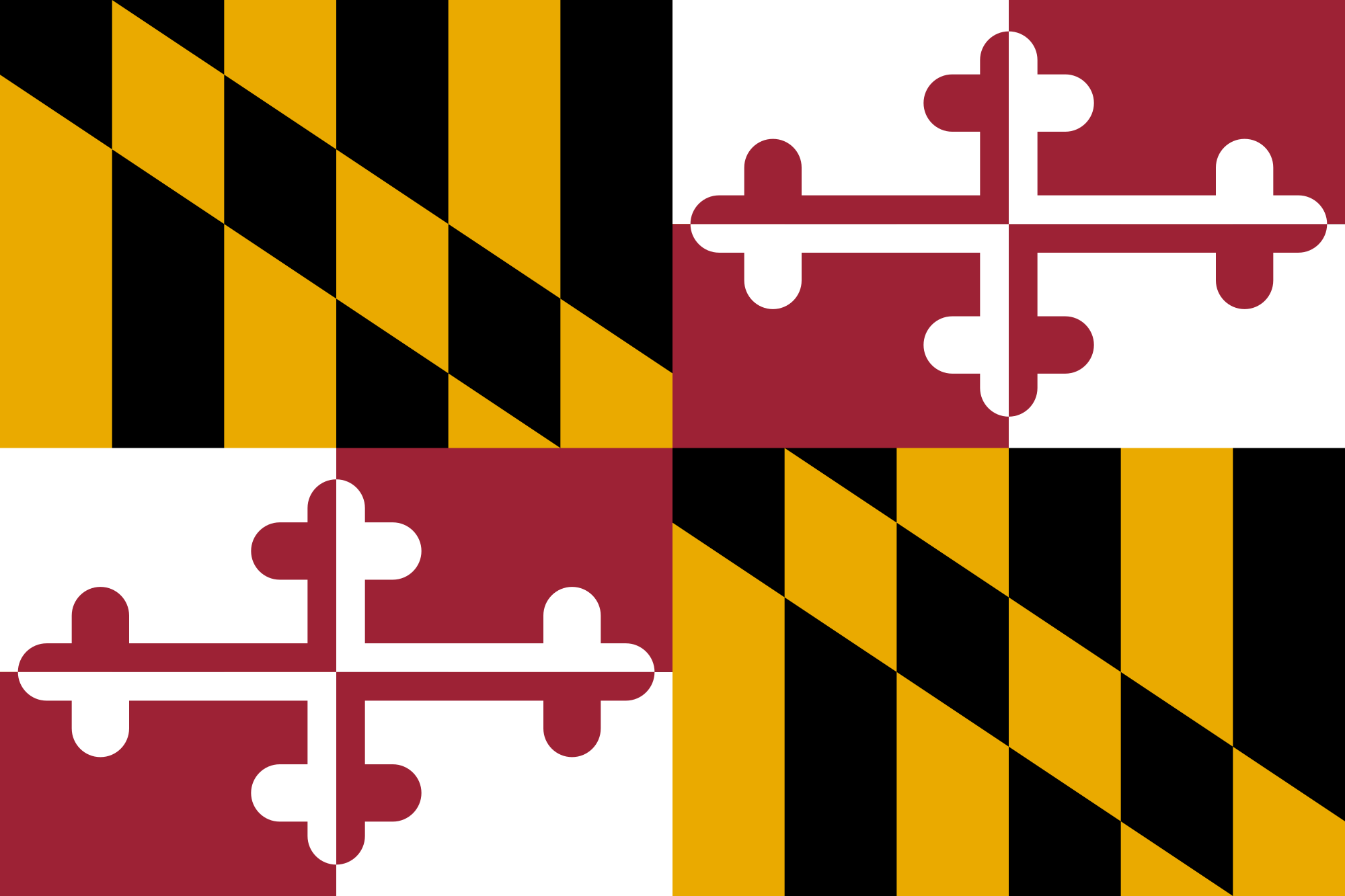Approximately 19% of children in Maryland have one or more special health care needs. Sometimes these health challenges can be caused by changes in our genes. Genetics providers help families learn whether genetic changes may explain the health conditions in their family and connect families to appropriate care.
Across the diverse state of Maryland, there are more than 50 genetics clinics to help answer your family’s questions. Learn more about how an appointment with a genetics professional could help you and your family.
Learn about the Genetics Journeys from MD families
What to Expect at a Genetics Appointment
What is genetic counseling?
Genetic counseling is a process where you can learn more about genetic conditions and how they may be affecting you, your child, and your family. Meeting with a genetic counselor can help identify if a condition or symptom is genetic, who is at risk for inheriting these symptoms or conditions, and what genetic testing options are available. You may be interested in genetic counseling at various life stages, which includes planning for pregnancy, during pregnancy, childhood, adulthood, and late in life.
What happens at a genetics appointment?
At a genetics appointment, you will often meet with a genetic counselor first. They will ask you detailed questions about your family history, you or your child’s medical history, and your child’s developmental history. Often a doctor will join the session to do a physical exam. You will likely be offered genetic testing. The genetic counselors are trained in both genetics and counseling, so they will work with you to help make the best decision for you. Of note, every session can be slightly different!
If you are attending a prenatal genetics appointment, the appointment will be very similar to the one outlined above. However, the genetic testing options you may be offered typically include screening tests, such as NIPT and carrier screening, or diagnostic tests such as an amniocentesis or a CVS (chorionic villus sampling).
What information should I gather before I meet with genetics?
It is helpful to have your detailed family health history, especially any information on people with a similar diagnosis or symptoms. It would also be helpful to gather any questions you may have.
Why do we ask you about your family health history? Find out here Your family health history
Resources for Children and Families with Genetic Conditions in MD:
Explore other genetics resources for patients and families: Patients & Families | NYMAC (nymacgenetics.org)




